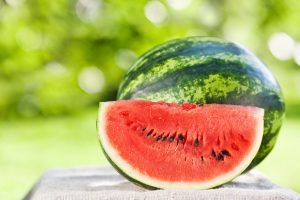By Clint Thompson
Josh Freeman, University of Florida (UF)/Institute of Food and Agricultural Sciences (IFAS) Associate Professor in Horticultural Science, is completely honest when assessing the potential of fall watermelon production in north Florida.

“To be completely frank, we would not recommend watermelon growers grow watermelons in the fall,” Freeman said.
His blunt assessment is attributed to the multiple variables growers must overcome. These include weather, high disease pressure and whitefly infestations.
“We have two whitefly-transmitted viruses that are present, and we have exceptional whitefly numbers now in the fall. Those two things combined lead to disaster in watermelons. It causes significant yield loss, but it also causes major internal quality problems,” Freeman said. “Those can lead to rejected loads, and the amount of money growers have to put in from a fungicide standpoint, that has been the perennial problem; fungal disease control in the early part of the season.
“Usually by now we get into a favorable weather window. For us in north Florida and south Georgia, generally October and November are beautiful months; dry and warm. But the start of the season, you’ve got to get past July and August where it rains potentially every day or every other day. It’s a huge fungicide load early. Now it’s a huge fungicide load plus whitefly management. That’s why we don’t see many grow here because people have absolutely taken it on the chin from a loss standpoint since 2016.”
Current Whitefly Pressure
Freeman said whitefly pressure is picking up but is not near as bad as it has been the past several years.
“Our entomologists here are working to try to model our whitefly population because they certainly seem predictable based on our winters. That’s really what led to our catastrophic losses in 2016 and 2017. We had two successive very mild winters. Then we had whitefly populations in our spring crops which is almost unheard of,” Freeman said. “It’s not that the weather kills the whiteflies, but it kills a lot of the alternative hosts.”









